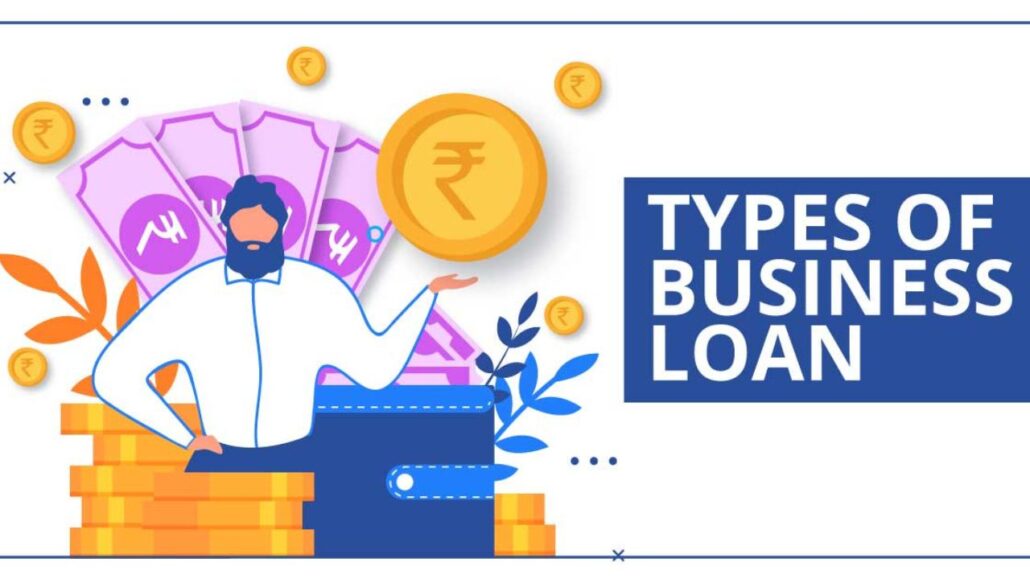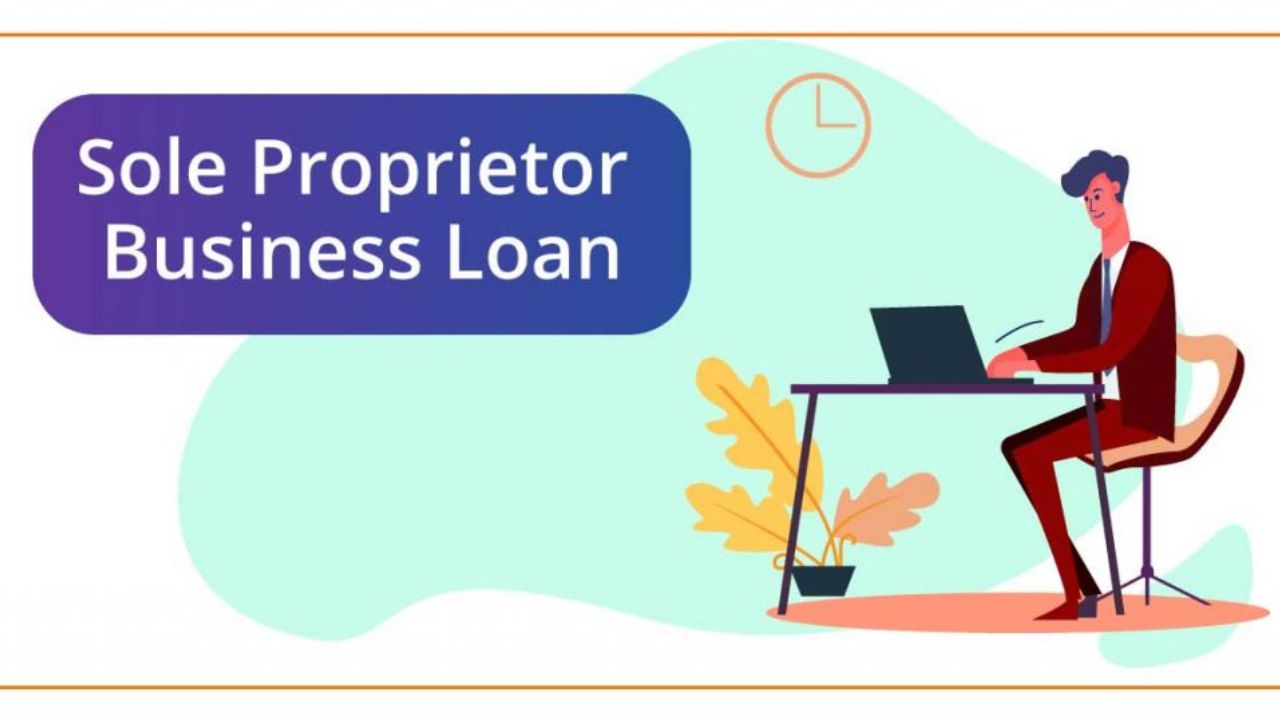Business Loans For Sole Proprietors, As a sole proprietor, the entrepreneurial journey often involves facing financial challenges. Whether starting a new venture or seeking to expand your existing business, having access to capital is crucial. Business loans tailored to sole proprietors can be valuable in such scenarios. This article delves into the intricacies of business loans for sole proprietors, exploring their types, requirements, benefits, and potential drawbacks.
What Are Business Loans For Sole Proprietors?
Business loans tailored for sole proprietors are specialized financial tools that offer essential funding to entrepreneurs who operate independently.
This distinct financial support distinguishes sole proprietors from corporations or partnerships, as sole proprietors bear personal responsibility for their businesses’ financial obligations, assets, and liabilities.
Such loans cater to many needs inherent in running a business alone, such as facilitating startup ventures, acquiring the necessary equipment, effectively managing cash flow dynamics, or fueling ambitious expansion endeavors. By understanding the unique challenges sole proprietors face and addressing their specific financial requirements, these loans play a pivotal role in sustaining and fostering the growth of solo enterprises.
Types Of Business Loans Available

Secured vs. Unsecured Loans
Secured loans require collateral, typically real estate or equipment, to serve as security for the lender in case the borrower defaults on repayment. In contrast, unsecured loans do not mandate collateral; however, this absence often results in higher interest rates and more stringent eligibility criteria.
While secured loans assure lenders of recouping losses through claimed assets, unsecured loans rely solely on the borrower’s creditworthiness. Therefore, borrowers opting for unsecured loans should be prepared for higher borrowing costs and more rigorous qualification standards.
Despite these disparities, both types of loans cater to diverse financial needs, offering borrowers varying flexibility and risk.
Short-Term vs. Long-Term Loans
Short-term loans are characterized by their brief repayment schedules, which usually range from a few months to a year. They are a valuable resource for individuals and businesses facing immediate financial needs or temporary cash flow challenges.
These loans offer quick access to funds, solving pressing financial obligations or unexpected expenses. Conversely, long-term loans feature extended repayment terms, often spanning several years.
They are well-suited for substantial investments or projects requiring significant capital over an extended period. Long-term loans provide borrowers the flexibility and stability to undertake large-scale initiatives and achieve long-term financial objectives.
Requirements For Obtaining Business Loans
Credit Score
Lenders evaluate borrowers’ creditworthiness by scrutinizing their personal and business credit scores. A heightened credit score augments the probability of loan approval and can yield more favorable loan terms, such as diminished interest rates and expanded borrowing limits.
A strong credit history is a testament to the borrower’s financial reliability and trustworthiness in repaying debts. It gives lenders a sense of assurance regarding the borrower’s ability to promptly and responsibly fulfill their financial obligations.
Consequently, borrowers with superior credit standings are more advantageously positioned to secure loans that align with their financial objectives and preferences.
Business Plan And Financial Statements
Crafting a comprehensive business plan that delineates the company’s goals, conducts a thorough market analysis, provides detailed financial projections, and outlines a repayment strategy is fundamental when seeking a business loan.
Moreover, financial institutions often mandate the submission of financial statements such as balance sheets, income statements, and cash flow forecasts. These documents serve as crucial tools for lenders to assess the financial stability and feasibility of the business venture.
By presenting a well-prepared business plan alongside meticulously compiled financial statements, entrepreneurs can effectively demonstrate their commitment, preparedness, and competence to potential lenders, thereby enhancing their chances of securing the necessary funding for their endeavors.
Collateral
Certain lenders might necessitate collateral to guarantee the loan, particularly when dealing with substantial loan sums or borrowers deemed more risky.
Collateral encompasses a variety of assets such as real estate, equipment, inventory, or accounts receivable. These assets serve as a form of security for the lender, offering assurance if the borrower defaults on the loan.
By pledging collateral, borrowers provide a safety net for the lender, mitigating the risk of lending money. This practice ensures that lenders have a means of recourse to recoup their funds should the borrower fail to fulfil their repayment obligations, thereby safeguarding their financial interests.
Benefits Of Business Loans For Sole Proprietors

Financial Flexibility
Business loans allow sole proprietors to address a multitude of expenses, ranging from acquiring inventory, upgrading equipment, launching marketing initiatives, and recruiting extra personnel, all while safeguarding their savings and resources.
This financial tool serves as a lifeline for entrepreneurs, enabling them to navigate the dynamic landscape of business operations without compromising their finances. With the assistance of business loans, sole proprietors can seize growth opportunities, mitigate cash flow challenges, and invest in the sustainable development of their ventures.
By accessing external funding, entrepreneurs can fuel innovation, expand their market presence, and position themselves for long-term success in their respective industries.
Business Expansion Opportunities
Having access to capital empowers sole proprietors to capitalize on growth opportunities. This includes ventures like venturing into untapped markets, introducing fresh product lines, or establishing more branches, all of which boost revenue and expand market presence.
With adequate funding, sole proprietors can confidently navigate the dynamic business landscape, embracing innovation and diversification.
By investing in strategic initiatives fueled by capital, these entrepreneurs can enhance their profitability and solidify their position in the market, fostering sustainable growth and resilience in the face of challenges.
Ultimately, access to capital catalyzes sole proprietors to realize their vision and unlock their business’s full potential.
Building Credit History
Ensuring prompt repayment of business loans holds significant importance for sole proprietors as it contributes to establishing and enhancing their business credit profiles.
This aspect is pivotal as it directly impacts their ability to secure larger loans, avail favourable terms, and access various financial products in the future. By consistently meeting their loan obligations within stipulated timelines, sole proprietors demonstrate reliability and financial responsibility to lenders.
This, in turn, instills confidence in financial institutions, making them more inclined to extend credit with better terms and conditions. Ultimately, a positive credit history serves as a valuable asset for sole proprietors, opening doors to enhanced financial opportunities and facilitating the growth and sustainability of their businesses over time.
Drawbacks And Risks
Personal Liability
Sole proprietors bear personal responsibility for their business’s financial obligations and liabilities, encompassing outstanding debts and loans. Should a default occur, creditors can pursue the individual’s assets.
These assets may comprise personal savings, investments, or real estate holdings, which creditors can legally seize to recuperate the owed debt. This underscores the inherent risk associated with sole proprietorship, as the entrepreneur’s finances are intricately intertwined with the business’s.
Consequently, prudent financial management and risk mitigation strategies are imperative for sole proprietors to safeguard their assets and ensure the sustainability of their businesses.
Higher Interest Rates
Business loans tailored for sole proprietors frequently have elevated interest rates compared to loans acquired by larger corporations. This discrepancy directly results from the heightened risk inherent in lending to sole proprietors.
These individuals may need more financial resources or operate less firmly established businesses, making them riskier borrowers from the perspective of lenders. Consequently, to compensate for this increased risk, lenders typically impose higher interest rates on loans extended to sole proprietors.
This practice aims to mitigate potential losses and ensure that lenders adequately compensate for the additional risk they undertake when financing sole proprietorships.
Potential Impact On Personal Credit
Failing to meet the obligations of a business loan can adversely affect the sole proprietor’s credit rating, creating hurdles in securing subsequent financing or personal loans for diverse needs.
When a sole proprietor defaults on a business loan, it signals to creditors a potential lending risk, leading to a tarnished credit history. This blemished credit profile can significantly reduce the chances of obtaining favourable terms or approval for future loans, mortgages, or credit cards.
Consequently, the individual may find it arduous to finance personal endeavours such as purchasing a home, financing education, or covering unexpected expenses. Thus, the ramifications of defaulting on a business loan extend beyond the business realm, impacting the sole proprietor’s financial stability and opportunities for personal advancement.
Tips For Securing Business Loans
Improve Credit Score
Ensuring a commendable personal and business credit score is a cornerstone of attaining advantageous loan terms. Sole proprietors must consistently monitor their credit reports, promptly rectify any inconsistencies or errors, and embark on initiatives to enhance their creditworthiness.
These endeavors include diligently adhering to timely bill payments and chipping away at existing debt burdens.
By diligently managing their credit profiles, sole proprietors augment their eligibility for favorable loan conditions and bolster their financial standing in the eyes of lenders, paving the way for future financial opportunities and stability.
Develop A Comprehensive Business Plan
Crafting a meticulously detailed business plan is a testament to the sole proprietor’s comprehensive grasp of the industry, including its intricate market dynamics, competitive environment, and potential avenues for growth.
Such a plan showcases the proprietor’s depth of insight and highlights their strategic foresight and ability to navigate the complexities of their business landscape. Recognizing the effort and diligence put into developing a robust plan, lenders tend to favor businesses that exhibit clear objectives, grounded financial projections, and a well-thought-out repayment strategy.
Consequently, a solid business plan greatly enhances the likelihood of loan approval, as it instills confidence in lenders regarding the borrower’s competence and readiness to manage borrowed funds effectively.
Explore Alternative Lenders
In addition to conventional banks and financial institutions, sole proprietors can investigate alternative lending avenues. These alternatives include online lenders, peer-to-peer lending platforms, and community development financial institutions (CDFIs).
These alternatives are noteworthy for their potential to provide more adaptable terms and expedited approval processes. By exploring these options, sole proprietors can access the capital they need more quickly and with terms that better suit their business objectives.
Diversifying lending sources empowers sole proprietors to tailor their financing to match their unique circumstances and goals, fostering a more dynamic and resilient entrepreneurial ecosystem.
Successful Sole Proprietors And Their Loan Experiences
Jane’s Jewelry Boutique:
A sole proprietor, Jane secured a business loan to expand her jewelry boutique and launch an e-commerce website, increasing sales and attracting a broader customer base.
Mike’s Mobile Repair Service:
Mike, a sole proprietor specializing in mobile device repairs, obtained a short-term loan to purchase new equipment and hire additional technicians, enabling him to meet growing demand and enhance service offerings.
Conclusion
Business loans for sole proprietors are vital in empowering entrepreneurs to pursue their business aspirations, fuel innovation, and drive economic growth. By understanding the various types of loans available, meeting the requirements, and leveraging financing strategically, sole proprietors can overcome financial obstacles and achieve long-term success.
FAQ
Are Business Loans For Sole Proprietors Difficult To Obtain?
While obtaining a business loan as a sole proprietor may require meeting certain criteria and providing documentation, it is achievable with proper preparation and planning.
Can I Use a Business Loan To Start A New Business As A Sole Proprietor?
Yes, business loans can cover startup costs, equipment purchases, leases of commercial space, and other expenses associated with launching a new business venture.
What Is The Difference Between A Secured And Unsecured Business Loan?
A secured business loan requires collateral to secure the loan, while an unsecured loan does not. Secured loans may have lower interest rates but carry the risk of asset seizure in case of default.
How Can I Improve My Chances Of Loan Approval As A Sole Proprietor?
Maintaining a good credit score, developing a comprehensive business plan, and exploring alternative lending options can improve your chances of securing a business loan.
What Happens If I Default On A Business Loan As A Sole Proprietor?
Failing to meet the obligations of a business loan can result in severe repercussions, encompassing adverse effects on one’s credit rating, the possibility of forfeiting collateral assets, and the initiation of legal proceedings by lenders aimed at recouping the unpaid debt. Such ramifications can significantly impair financial stability, hinder future borrowing opportunities, and potentially lead to the liquidation of valuable assets, thereby underscoring the critical importance of diligently and responsibly fulfilling loan obligations.



